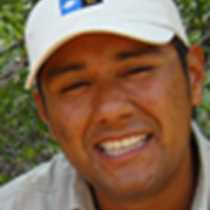Fernandina & Isabela Island
The western part of our archipelago is favored by the cold waters of Cromwell that prevail for half a year. This is a total benefit for most of the marine biodiversity that inhabit this place.
The flightless cormorant is one of the 29 species that doesn’t require its precious ability of flying anymore thanks to the perpetual food supply available nearly all year around. So the Galapagos penguins which are the third smallest species in the world, but the largest population exist along the western side of Isabela and the entire Island of Fernandina. This is an exceptional fact!
Our day began with the early morning hike along the 15,000 years old lava flow of Punta Espinosa, many of our guests were already awaiting their chance to disembark and so we did. At the first moment we saw upon the shoreline many marine iguanas feeding at the exposed reef, a full display of their clear adaptation to saltwater ingestion and the seaweed with it. Some sea lions seemed undisturbed by our presence and we took the opportunity to get as close as possible to enjoy the playful babies.
As we slowly moved along the beach we found some strange creatures washed far away into the sand. It took me a while to figure it out! They were jellyfish, an unusual type that landed last night, thousands of them with long tentacles and some creatures caught into them.
We came back on time just to change from our regular explorer’s clothing into wetsuits and snorkeling gear. There was so much to see that our underwater specialist used the opportunity to capture some great takes of a Galapagos penguin just in front of the camera, very relaxed.
In the afternoon our next adventure began with the spectacular landscape of Punta Vicente Roca. We have been so fortunate to see lots of sea turtles resting close to the shoreline. We couldn’t count them all, and the cormorants and penguins didn’t stop fishing from the beginning to the end of our visit.
When we decided to start the navigation a very large group of common dolphins appeared right ahead of the National Geographic Endeavour.
We had a complete experience.




